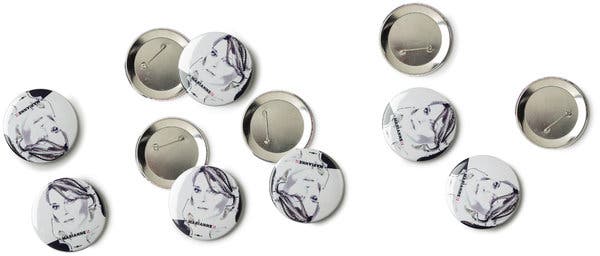
Marianne Williamson joined the presidential campaign in January 2019. One year later she left it.
There’s a difference between form and content. Forms change, but content doesn’t. As long as you’re focused on content then you’re more emotionally and psychologically able to let form go.
I think sometimes in life, we grasp at form and that never ultimately serves, because when the wind isn’t at your back, that doesn’t necessarily mean your ideas are wrong. It simply means that a form isn’t thriving. Sometimes in life you have to let one form die before another one can be born.
It was difficult getting to the decision to end the campaign, but once the decision was made, there was some level of peace and relief. When you commit to a goal, you are hoping that goal materializes. So there’s always some level of grief connected to letting go the form of a dream or of a goal you have.
I told a supporter in New Hampshire that we had beautiful flowers, but that I failed to create a vase. And she said, that’s O.K., because now we’re going for the garden.
I feel I have a somewhat small window of opportunity, during which to take the energy that was created on this campaign and harness that in some movement going forward.
So, I’m not on vacation. I’m not on vacation at all. I’m planning a conference called the Repair America conference that will be held in late March in Washington, D.C., with people convening to continue talking about the issues that this campaign stood for.
I have long felt that people in the transformational and higher consciousness, religious and spiritual communities are the last people who should be standing on the sidelines in regard to the great economic, political and social questions of our day.
Because if you know what changes one heart, you’re the one who has a clue as to what would change the world.
Throughout our history, some of the greatest social justice movements have emerged from religious and spiritual circles. What is happening now is an aberration. The way the left has pushed to the sidelines a larger spiritual perspective — at least when that perspective is articulated by me — is an aberration.
Bobby Kennedy was the one who said that the war in Vietnam was a contest for the soul of America. John F. Kennedy said, “This country cannot afford to be materially rich and spiritually poor.” Martin Luther King said was time “to inject a new dimension of love into the veins of our civilization.”
I grew up in a generation where you read Ram Dass and Alan Watts in the morning, and you went to a Vietnam antiwar protest in the afternoon. The countercultural tumult of that time was all across the board. It was personal, it was sexual, it was cultural, it was musical, and it was political.
They were all mixed in together. And the separation of those things into categories has diminished our capacity to present to the American people the kind of holistic vision of change that I believe is necessary.
[Sign up here for Wait …, our newsletter on how technology and celebrity are changing our lives.]
I think the emotional tenor in the last campaign, among the electorate, it was rage, and it was legitimate rage. It was rage based on the fact that millions and millions of people knew that the system was rigged against them. And they were right about that.
Now this time, however, some of the underlying forces have shifted. And I think that the emotional tenor of this moment is not rage. I think it’s exhaustion.
How you exit a situation is very important in any relationship, in any endeavor. And this exit was done with a lot of conversation among my supporters and those closest to me. So it wasn’t like we didn’t process what was happening.
It was important to me that people understood what was happening, what I was thinking and feeling. And it was important that I understood what they were thinking and feeling. And because of that there was among quite a few people a consensus.
There were multiple conversations. And it was difficult. It was emotionally difficult, but I’m sure it was emotionally difficult for Kamala. It was emotionally difficult for Beto. It was emotionally difficult for Cory. I mean, we’re all grown-ups here.
Everybody understands this is tough. It’s tough for people. Candidates are human beings. And you’re deeply exposed and we’re living in a very meanspirited moment. So everybody could step back and appreciate everybody’s humanity a little more than we do.
Americans sometimes have an odd idea about what makes up failure and what makes up success. My effort failed as a presidential campaign, but it succeeded in putting a lot of ideas out there that I feel belong in the national debate.
I Quit!
Photo Illustration by Tony Cenicola/The New York Times
This interview has been edited.








